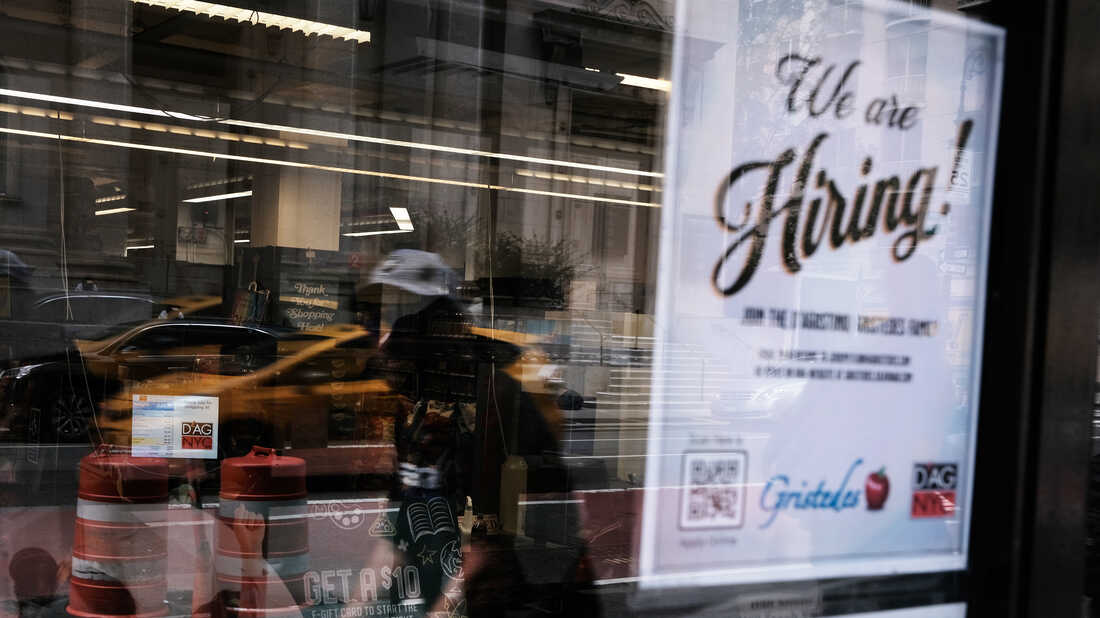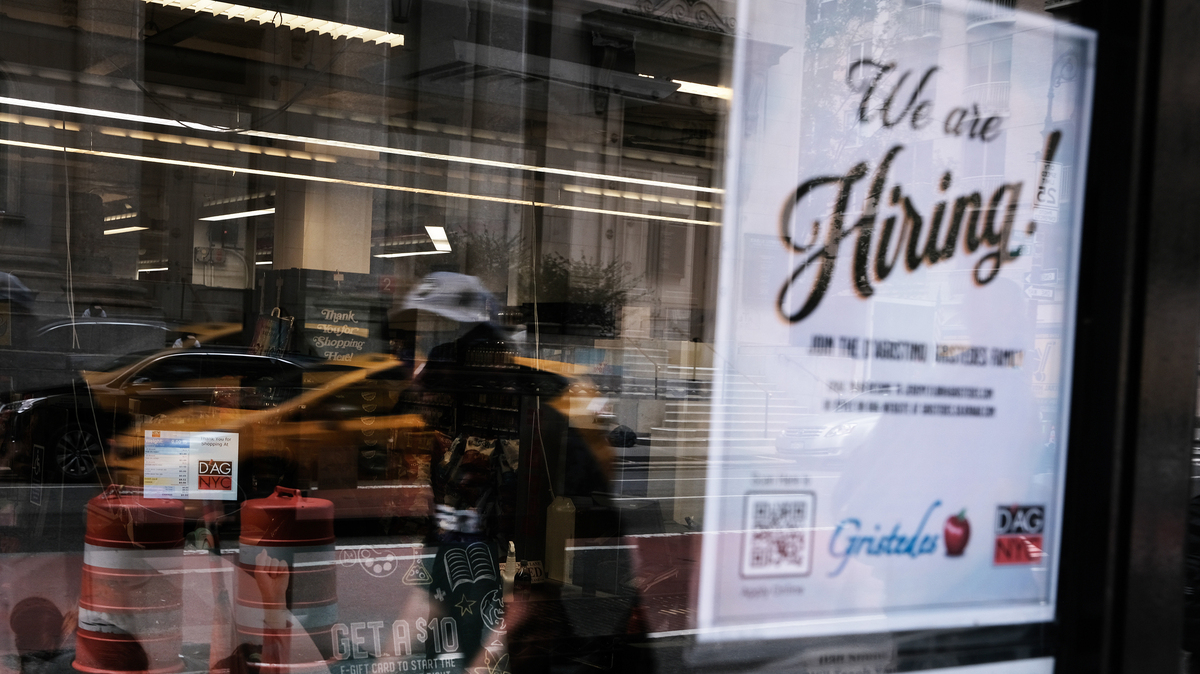
A hiring sign gets displayed in a store window in New York City in August. Last month saw a sharp slowdown in hiring from previous months as the pandemic wears on and creates uncertainty. Spencer Platt/Getty Images hide caption

A hiring sign gets displayed in a store window in New York City in August. Last month saw a sharp slowdown in hiring from previous months as the pandemic wears on and creates uncertainty.
Spencer Platt/Getty ImagesLast week's jobs report for the month of August show signs the delta surge is slowing the economic recovery, just as some pandemic safety net programs disappear. The Supreme Court recently struck down a federal eviction moratorium, and supplemental pandemic unemployment benefits expired on Monday.
NPR's chief economics correspondent Scott Horsley explains what that could mean for the pace of the recovery.
With a federal eviction ban no longer in effect, renters could tap into billions of dollars in federal rental assistance authorized by Congress. But there's a problem: states have been slow to get that money into programs that can distribute it to tenants and landlords. NPR's Laurel Wamsley reports on one effort to speed things up in Tennessee.
Additional reporting in this episode from NPR's Chris Arnold, who's been covering evictions during the pandemic.
Email us at
This episode was produced by Brent Baughman, Ashley Brown, Alejandra Marquez Janse, and Lauren Hodges. It was edited by Scott Horsley, Chris Arnold, Rafael Nam, Lee Hale, and Fatma Tanis. Our executive producer is Cara Tallo.

 Live Radio
Live Radio